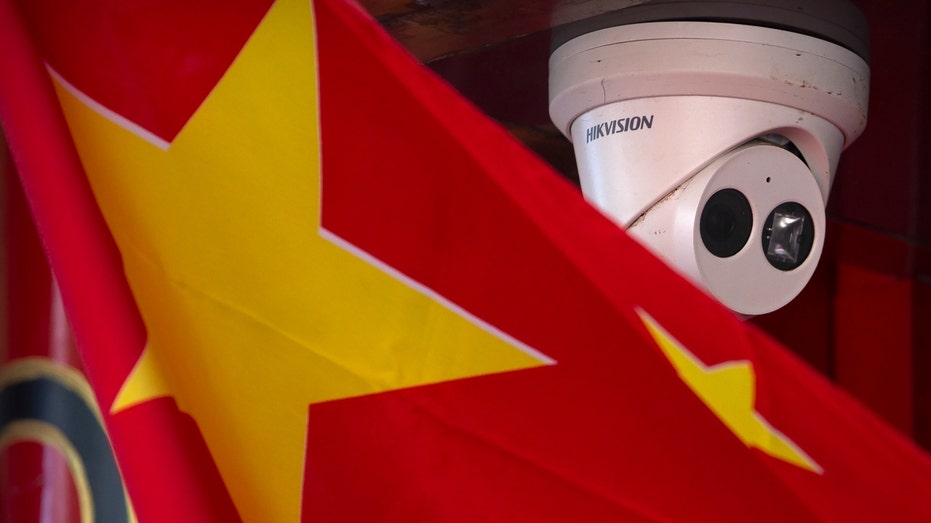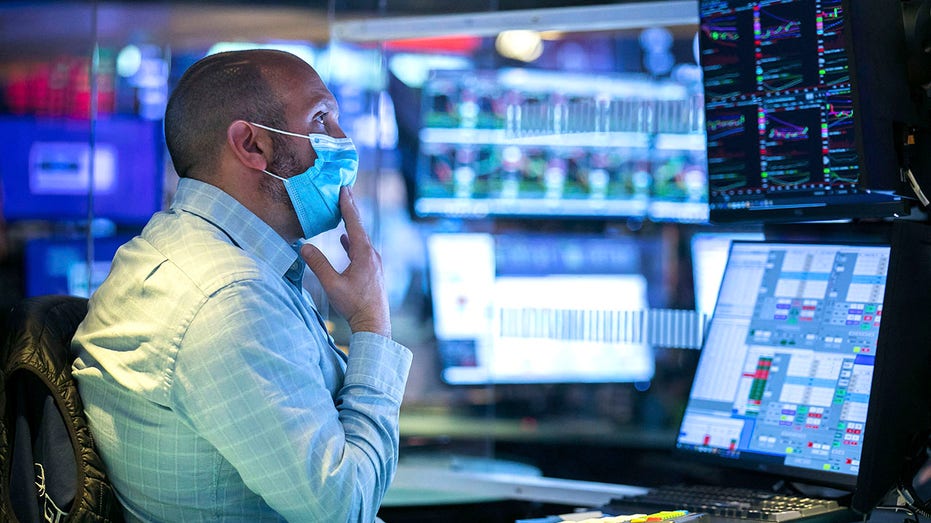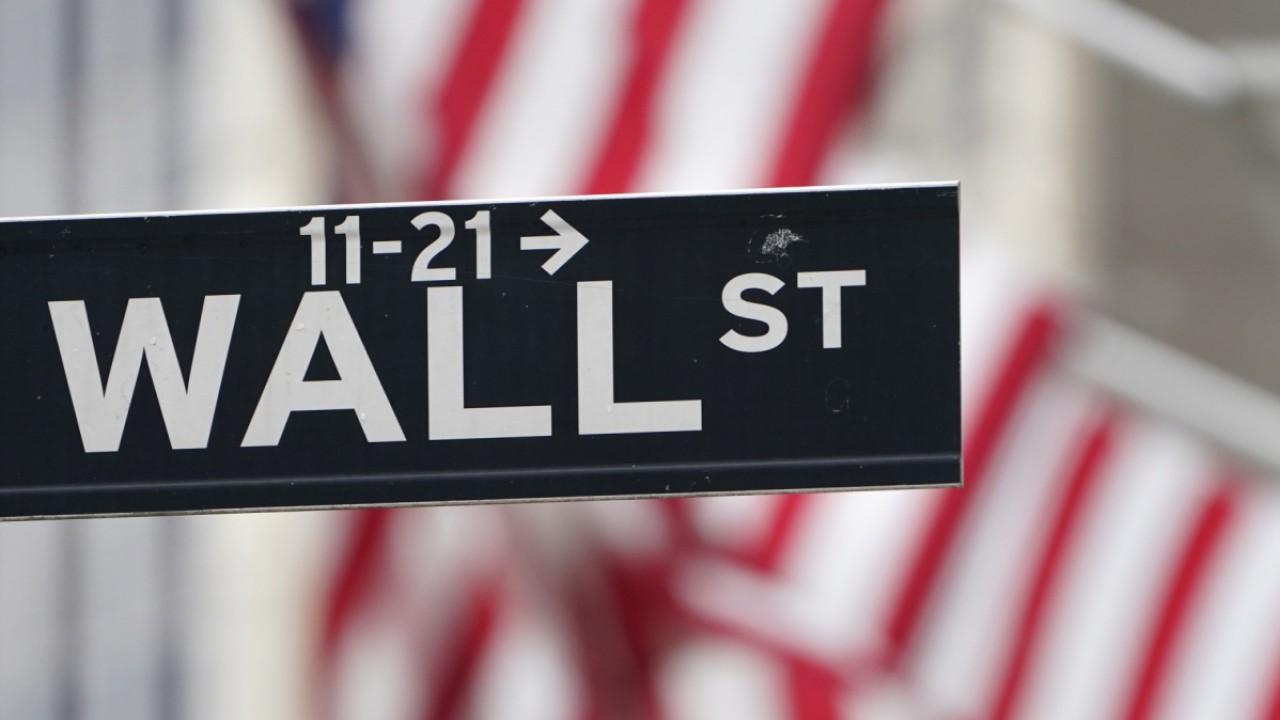How China stands to profit from the coronavirus pandemic
Beijing is closing the economic gap as the US economy shrinks
It has been almost a year since global health officials heard word that a new coronavirus, officially termed COVID-19, had emanated from the Chinese city of Wuhan.
And while much of the world is grappling with crippled economies and the second wave of infections and deaths, analysts and economists project that Beijing is already standing to gain from the devastation long before the dust has settled.
"China's rapid return to more normal activities, including commercial, puts it ahead of the United States and Europe, and now South Korea, in terms of economic activity," Dean Cheng, a research fellow in Asian Studies and National Security at The Heritage Foundation, told Fox News. "It can also use its position to try and pick up market share from competitors – from shipbuilding to steel-making to chip-making – who are still operating under COVID quarantine conditions."

A Chinese flag hangs near a Hikvision security camera outside of a shop in Beijing on Oct. 8, 2019. U.S. President Donald Trump has stepped up a conflict with China over security and technology by issuing an order barring Americans from investing in
In the realm of biotechnology, defense experts have also pointed to exponential levels of growth.
"As of December 2, 2020, according to the World Health Organization (WHO), in terms of the phase 3 trials of prospective COVID-19 vaccines, 7 out of the 13 candidates have links to China," John Wood, a prominent U.S.-based defense analyst, told Fox News. "Three of these candidates are not only from China, but are directly tied to the People's Liberation Army [PLA]."
US STOCK FUTURES TRENDING HIGHER ON CORONAVIRUS VACCINE, STIMULUS NEWS
Already, China has vaccinated over 1 million of its own citizens and is in the process of a large scale roll-out of up to 100 million people.
"By and large, China has contained the COVID-19 pandemic in its own country, and as a result, is looking to be a less expensive supplier to third world countries, who may not be able to afford pricey vaccines from Europe and the USA," Wood explained.
For one, Sinovac, a China-based biopharmaceutical company, has contracted to supply 50 million doses to Turkey, 46 million to Brazil and 40 million to Indonesia. Meanwhile, CanSino Biologics, another China-based vaccine conglomerate, has agreed to supply 35 million doses to Mexico, as well as supply its vaccine to Argentina, Chile, Pakistan and Russia.
"Because of the COVID-19 global pandemic, China is emerging as a biotechnology superpower, poised to surpass the United States, particularly in genomics. China is a worldwide major supplier of PPE, and COVID-19 testing kits is cashing-in to the tune of billions of dollars," Wood continued. "China is positioned to do the same thing with regards to COVID-19 vaccines."

Photo credit: iStock
Because of the fusion between the military and civilian sectors of the Chinese biotechnology sector, stands the PLA.
"[Beijing] is well placed not only to weaponize but to assume the global strategic commanding heights over biotechnology," Wood said.
And in terms of overall markets, China's economy is back on the upswing.
Beginning in April, as the novel contagion seeped into almost every pocket on the planet, Chinese authorities rapidly sought to jumpstart factories and dramatically increase its share of global exports – especially in the domain of medical equipment such as sterilizers and face masks, as well as teleworking necessities such as computers and technology devices.

In this photo released by Xinhua News Agency, Chinese President Xi Jinping, also general secretary of the Communist Party of China (CPC) Central Committee, speaks during fifth plenary session of the 19th CPC Central Committee in Beijing on Oct 29, 20
Despite marketing campaigns indicating that the medical supplies were out of generosity to nations overwhelmed by the virus, analysts have since contended that many were sold – shipped with a Chinese flag across the packaging and phrases of friendship – and much of the vital supply line, including test kits, were proven defective.
By October, according to the Chinese Communist Party (CCP), its gross domestic product had surged by 4.9%, returning its economy to its pre-COVID path. Data released late last month by the country's National Bureau of Statistics, China's industrial profits expanded 28.2% year-on-year in October.
A number of economists attributed China's fast rebound to the notion that it has managed to avoid a second rash of the pathogen, which is ravaging much of the developed world.
But others have a vastly different take.
"Whilst withholding information about the coronavirus from the outside world, China was preparing and planning to combat the hard times ahead, and as a result have been the first major economy to get back running at full capacity," contended Ken Mahoney, CEO of the Wall Street financial firm Mahoney Asset Management. "Time is money, so financially, it has allowed Chinese manufacturers and businesses to fill the depleted goods and services of other countries around the world. To add to this, the Chinese have taken financial advantage of vulnerable countries crying for fiscal support by offering credit in exchange for national assets as collateral."
Derek Scissors – a resident scholar and Chinese economy expert at the American Enterprise Institute (AEI) – surmised that the biggest advantage China has due to its production of medical goods is also political.
"It can threaten companies and countries with loss of medical supplies to ensure their cooperation with its political and commercial goals," he said.

In this photo provided by the New York Stock Exchange, specialist James Denaro works at his post on the trading floor, Wednesday Oct. 28, 2020. The Dow Jones Industrial Average dropped 943 points Wednesday as surging coronavirus cases in the U.S. and
Over the course of the pandemic, China's economy was bolstered in particular by the tech demand from the U.S. – a growth of 37% in shipments of products such as tablets, monitors, and parts, throughout the first quarter and contributing to 2.4 percentage points over the overall uptick, according to a report by investment bank UBS. Experts expect it will remain strong into 2021 on a trajectory of continued economic growth.
"The Chinese economy is already back to pre-coronavirus levels as they benefit from reopening factories early, coupled with low wage workers, and reduced regulation they are perfectly placed to exploit the rest of the world," Mahoney said. "Chinese medical manufacturers have a cost advantage over the rest of the world when it comes to personal protective equipment and testing kits. Combine this with government subsidies and being allowed to reopen early; it is no surprise they have monopolized the medical supplies market as other countries stay locked at home."
Cheng also pointed out that China has resumed sending workers abroad, in some cases with claims of being vaccinated, or at least subjects of test vaccinations.
"While Chinese statistics should always be treated with some skepticism, it does appear clear that China is not under anywhere close to the lockdown conditions marking the U.S., and increasingly Europe and even South Korea," he said. "China clearly hopes to use its economic position and rapid recovery from COVID to pick up market share in a variety of technologies and sectors, from information and communications technology (ICT) to 5G/broadband to shipbuilding, as it competes with countries, economies, and companies that are still recovering."
Domestically, Chinese brands and businesses have sought to recover quickly. Despite hotels and other accommodations being twice the average prices, rooms have primarily been occupied. Its movie theaters, unlike in the U.S., have remained open albeit with fewer available seats, attributing hundreds of millions to the economy.
In total, the International Monetary Fund is projecting China's economy to surge 1.9% by the year's end, while the American system is slated to decrease by 4.3% and the Eurozone by 8.3%.
CHINESE FACTORY GATE PRICES FALL AT SLOWER PACE IN NOVEMBER, SIGN ECONOMY RECOVERING FROM COVID-19
Observers expect China's upward trend to continue well into the new year.
"China will deliver one of the strongest and fastest macro recoveries in 2021 among major economies globally," Goldman Sachs noted in its China outlook report, forecasting a 20% rebound in Chinese corporate profits and staying overweight Chinese equities.
Morgan Stanley has additionally portended China as "solid," with the country's benchmark CSI300 Index is expected to rise to 5,570 points at the end of 2021 in a best-case scenario.
According to Reuters analysis in late November, "Chinese regulators have been aggressively wooing foreign investors with accelerated moves to open up China's capital markets."
The Chinese growth has frustrated many not only in the financial arena but in the political one too, given that the devastating virus originates from China and for weeks was covered up and information suppressed by Beijing and its close allies in the U.N.'s World Health Organization (WHO). That, in turn, has led to the deaths of hundreds of thousands of Americans, with a lasting ripple effect on the economy.
A 2020 Report to Congress of the U.S.-China Economic and Security Review Commission, unveiled this month, emphasized that "China's actions to influence the votes of United Nations members, including through coercive means" and the "actions by nationals of the People's Republic of China serving in functional positions in United Nations organizations impacting hiring practices, internal policies, and other functions that appear to support the interests of the Chinese government in violation of United Nations impartiality standards" was of particular concern.
"China is engaged in a global competition for power and influence with the United States," the report stated. "China's economic engagement with the United States has proved to be a critical enabler of its rapid economic growth, steadily feeding Beijing's confidence in its ability to act on its longstanding ambition to match and ultimately displace the United States as the predominant global leader."
CLICK HERE TO READ MORE ON FOX BUSINESS
The commission went on to illuminate that as Chinese leaders have perceived the power gap between China and the United States as steadily closing, they have become increasingly confident in their ability to expand the reach of the CCP's authoritarian values and repression to the detriment of the United States, its workers, businesses, and allies.
"China has one foot in front of their competitors in the fact they are back to full capacity whilst other countries remain completely shut down or partially open," Mahoney added. "This causes a domino effect, and benefitting from first-mover advantage will only accelerate them further."
As it stands, there have been at least 70 million coronavirus infections across the globe, and more than 1.5 million people have died.




















